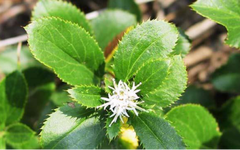Cang Zhu (Atractylodes)
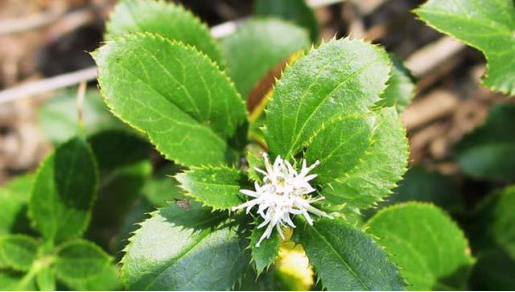
Alias: Chi Zhu, Qiang Tou Cai, Ma Ji, Qing Zhu, Xian Zhu.
Source: The rhizome of the Asteraceae plant, either Nan Cang Zhu or Bei Cang Zhu. It can be harvested in spring or autumn, with autumn being preferable. After harvesting the rhizome, remove the residual stems, fibrous roots, and soil, then dry it in the sun.
Taste and Properties: Pungent; bitter; warm in nature.
Meridians Entered: Spleen; Stomach; Liver.
Dosage:
Internal Use: Decoction, 3-9g; or prepared as a paste, pills, or powder.
Functions and Indications: Strengthens the spleen, dries dampness, relieves depression, and dispels filth. It is used for excessive dampness obstructing the spleen, fatigue and drowsiness, abdominal distension, loss of appetite, vomiting, diarrhea, dysentery, malaria, phlegm retention, edema, seasonal colds, wind-cold-damp bi syndrome, foot weakness, and night blindness.
Perspectives on Cang Zhu

▶ “Ben Cao Tong Xuan”: Cang Zhu promotes sweating and relieves the middle, its efficacy surpasses Bai Zhu, but its ability to tonify and eliminate dampness is inferior to Bai Zhu. Generally, the soil that is low and monitored should be paired with Bai Zhu to enhance it, while the soil that is rich and thick should be paired with Cang Zhu to balance it.
▶ “Ben Cao Zheng Yi”: Cang Zhu has a strong aroma and flavor, more potent than Bai Zhu, capable of penetrating both upper and lower, drying dampness and transforming phlegm, aromatic and dispelling filth, effective against the unwholesome qi of all seasons; thus, it is often used in epidemic diseases. It is best at driving away foul and turbid qi, in damp and stagnant areas, and in long-uninhabited houses, it is advisable to burn this herb before residing there. For all cases of dampness obstructing the spleen yang, fatigue and drowsiness, limb soreness, chest fullness and oppression, and even membrane distension with a thick and greasy tongue, without the strong aroma of Cang Zhu, it cannot be released, and phlegm retention cannot be transformed. At the turn of summer and autumn, when heat and dampness are combined, causing cold and heat headaches, or chest fullness and nausea, Cang Zhu, Huo Xiang, and Peilan leaves should be used to awaken the spleen. For spleen dampness stagnation, it may lead to membrane distension, swelling, diarrhea, or heavy limbs with edema, or accumulation leading to difficulty in urination and defecation, and damp-heat stagnation causing sores and ulcers, or cold-dampness causing yin abscesses and pain, but with a greasy tongue and no thirst, Cang Zhu is the most essential herb. It is applicable for both internal and external diseases, and has great utility.
▶ “Yu Qu Yao Jie”: Bai Zhu retains and does not move, while Cang Zhu moves and does not retain, hence Bai Zhu is good for tonifying, and Cang Zhu is good for moving. Both can aid digestion and stop vomiting and diarrhea, but Cang Zhu excels in dispelling water and relieving stagnation.
▶ “Ben Cao Zheng”: Cang Zhu, being warm and dispersing, can promote sweating and relieve the middle, regulate the stomach and aid in food intake, alleviate abdominal pain and vomiting, relieve various stagnations, expel mountain mists and cold epidemics, disperse wind and relieve headaches, eliminate phlegm and resolve qi blockages, and reduce edema and fullness. Its drying nature treats cold dysentery, cold diarrhea, and intestinal wind, as well as cold-damp sores. When decocted with Huang Lian, it is most effective in expelling lower jiao damp-heat and bi syndrome. However, only the high-quality Cang Zhu is firm and small, with a sweet and mellow taste, and has many tonifying effects, greatly surpassing other types.
Selected Formulas

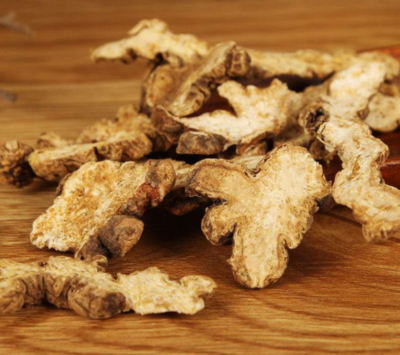
✿ For Colds:
Cang Zhu 1 liang, Xi Xin 2 qian, Ce Bai Ye 3 qian. Grind into a fine powder, take 1.5 qian four times a day, mixed with hot water, using scallion white as a guide, and consume raw. (Inner Mongolia “New Medical Methods of Chinese Herbal Medicine”)
✿ For Body Pain from Dampness:
Cang Zhu, soaked and sliced, decocted in water to extract a concentrated juice, then reduced to a paste, taken with white soup. (“Simple Prescriptions”)
✿ For Gum Swelling:
Large Cang Zhu, cut into two pieces, with a hole in the middle, filled with salt, wrapped in wet paper, burned to ash, ground finely, and applied to remove wind and phlegm, then rinse with salt water. (“Pu Ji Fang: Cang Zhu Powder”)
✿ For Vision Improvement and Bone Health:
Cang Zhu (soaked) 4 liang, Shu Di Huang (roasted) 2 liang. Grind into powder, mix with wine to form pills the size of a walnut. Take 30-50 pills with warm wine, three times a day. (“Pu Ji Fang”)
✿ For Controlling Malaria Symptoms or Prevention:
Cang Zhu, Bai Zhi, Chuan Xiong, Gui Zhi in equal parts, ground into powder, use 1 gram, wrapped in four layers of gauze into a long shape, inserted into the nostrils 1-2 hours before a malaria attack, for 5 hours or 1 day. (“Shanxi Chinese Herbal Medicine”)
✿ For Abdominal Cold:
Cang Zhu Pills (“Zha Bing Yuan Liu Xi Zhu: Internal Injury and External Pathogens”), prepare 2 jin of Cang Zhu, 1 jin of Shen Qu. Grind into fine powder, mix with honey to form pills, take 30 pills with rice soup, three times a day. For severe cold, add 3 liang of Gan Jiang; for abdominal pain, add 3 liang of Dang Gui; for weakness, add 2 liang of roasted Gan Cao.
✿ For Taiyang Headache:
Cang Zhu Dispersing Decoction (“Zheng Yin Mai Zhi”), Cang Zhu, Bai Zhu, Hou Po, Bai Fu Ling, Chen Pi, Gan Cao, Ban Xia Qu, decoct in water to take.
Special Notes

▶ Those with yin deficiency and internal heat, or qi deficiency with excessive sweating should avoid it.
▶ It is recommended to use under the guidance of a physician.
Copyright Notice: The articleis compiled from the China Traditional Chinese Medicine Newspaper and the “Dictionary of Chinese Herbal Medicine”, copyright belongs to the original author, infringement will be deleted.
Previous Recommendations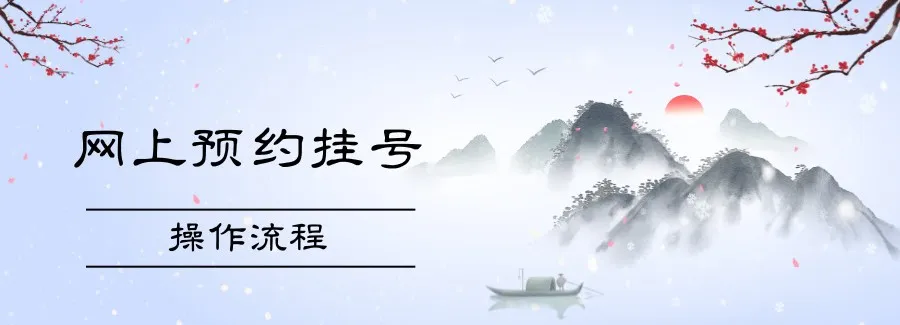
Improving Medical Experience, Enhancing Patient Experience (1): Online Appointment Registration
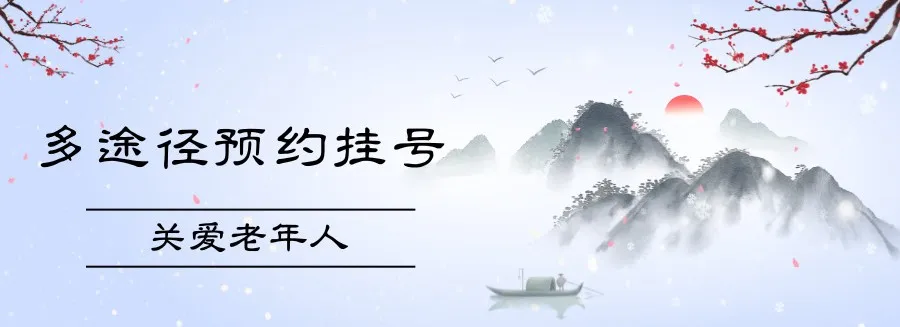
Improving Medical Experience, Enhancing Patient Experience (2): Multiple Ways to Make Appointments

[Collection] Jiangxi Province Traditional Chinese Medicine Medical Route is Here!
Affiliated Hospital of Jiangxi University of Traditional Chinese Medicine Outpatient DepartmentEditor: Wan LihongInitial Review: Zhang YuhongFinal Review: Meng ShufanSubmission Email: [email protected]Contact Number: 0791—86361236We welcome everyone to actively submit articles

Follow me for
More Health Tips

